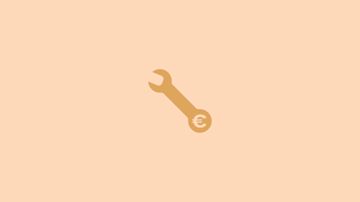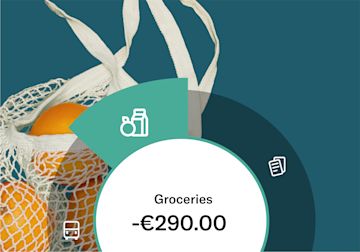
What is compound interest? A beginner's guide
If you'd like to boost your savings, compound interest will help you earn more over time. Learn how it works and how to use it to increase your savings over the long term.
5 min read
When it comes to investments, there are plenty of options available, depending on your life stage, goals, and the sum you’re able to invest. Regardless of your situation, if you're interested in boosting your savings over the long term, a compound interest savings account might be precisely what you’re looking for.Understanding how compound interest works will help you to make smarter investment decisions. In this article, you'll learn what compound interest is, how it can increase your savings over time, and how to find out if it's the right option for you. Ready? Let's go.Let’s get really granular: The word "compound" refers to something made of two or more elements, while “interest” is money paid for money lent or deposited. Given this, compound interest is effectively interest that’s calculated on an account’s principal balance—which, for a savings account, is the original balance that you deposit. In the case of compound interest, you’re generating "interest upon interest." It adds interest based on the initial interest rate, and this includes interest accumulated from previous periods. Compound interest can combine interests on any given schedule: daily, monthly, or even annually. So, with a savings account that earns compound interest, you’ll earn interest on the initial principal and the accumulated interest over time. Let's look at some examples to understand more. Let’s say you deposit €5,000 in an account that pays 1.2% annual interest. After one year, you'll have €5,060—earning €60 interest during the year. Compound interest adds to that yearly 1.2% interest. By the end of year two, you'll earn 1.2% interest on €5,060—the initial rate plus the interest—closing it with €5,120.72. In ten years (without adding any monthly contributions), you'll have €5,633.46.Initial balance × (1 + (interest rate / number of compoundings per period) number of compoundings multiplied by the number of years
Remember, in our example, the savings account pays 1.2% annual interest and the principal balance is €5,000.
So, by using the equation above, at the end of year two, your initial deposit with a yearly compounding interest would be the following:
5,000 x (1 + (0.012 / 1)1 x 2 = €5,120.72
However, if you had an account with daily compounding, after the end of year two, you'd have the following:
5,000 x (1 + (0.012 / 365)365 x 2 = €5,121.45Over the years, frequent compounding can increase your earnings significantly. This means that it’s in your best interest to look for an account with high interest rates and frequent compounding, as this will earn you more interest over time. Alternatively, you can also use this compound interest calculator to estimate your earnings over any period of time.In a word—yes! By adding interest on interest, this type of savings account accelerates your earnings—making compound interest an excellent solution for investors who want to grow their savings over the long term. Of course, it’s worth checking out which accounts have the most favorable conditions, but whether your balance grows year by year or day by day, it’s certainly a good idea to take advantage of a compound interest savings account when looking to build your wealth. If you're ready to open a compound interest savings account, keep the following points in mind: When it comes to compound interest, the secret ingredient is time. The earlier you start saving or investing, the longer your money will benefit from the interest accumulated. Remember: you're getting additional interest on interest, so the growth happens while the money stays in your account—the longer, the better.Have a look at the annual percentage yield (APY). This metric relates to the effective interest rate of an account, compounding included—meaning you won't have to calculate what your earnings will be depending on the compound frequency. The higher the APY, the better. By comparing the APY between different accounts, you'll know exactly which one will generate more interest over time since the frequency of the compounding interest will already be taken into consideration. (It’s like a shortcut to those equations we were using earlier.)The more frequent your compound interest is, the better—in summary, because the interest will be compounded more often over time, resulting in higher earnings. While the APY can indicate which compound interest has the higher frequency, checking out the scheduled compounding will give you a definitive answer. And if two accounts have the same interest rate, the compounding frequency will indicate which one will pay more interest in the long run.
N26 is all about making banking easy and straightforward. If you need help planning for the future, check out a tip or two from our guide to personal finance planning. And if you find it hard to resist that third coffee on the go or a new pair of shoes, fear not—simply set daily spending and withdrawal limits with just a few taps in your N26 app. Or sign up for a premium Smart, You, or Metal account and use N26 Spaces sub-accounts to automatically put money aside every month for your unique goals. And, as a fully licensed bank, your N26 account is protected up to €100,000 by the German Deposit Protection Scheme. Compare our plans now and discover how to budget with The Mobile Bank!
What is compound interest?
How does compound interest work?
Is it worth opening a savings account with compound interest?
How to make compound interest work for you
1. The earlier you start saving, the better
2. Check out the interest rates and the annual percentage yield (APY)
3. Always keep an eye on the compounding frequency
Your money at N26
Find similar stories
BY N26Love your bank
Advertising message for promotional purposes. Please see the contractual documentation for more information in the Legal Documents Section.
Related Post
These might also interest youBUDGETINGBudgeting tools to get your finances on trackBudgeting tools demystify the budgeting process. Read on to find out how.
7 min read
BUDGETINGWhat to include in your family budget Budgeting for the family can feel like a chore, but with a few simple adjustments, it can also be empowering! Read on to discover how to create a family budget the easy way.
5 min read
BUDGETINGMoving in together: tips to manage monthly expensesMoving in with your partner means budgeting together. Read our guide on how to budget for your new home and live in harmony.
5 min read


